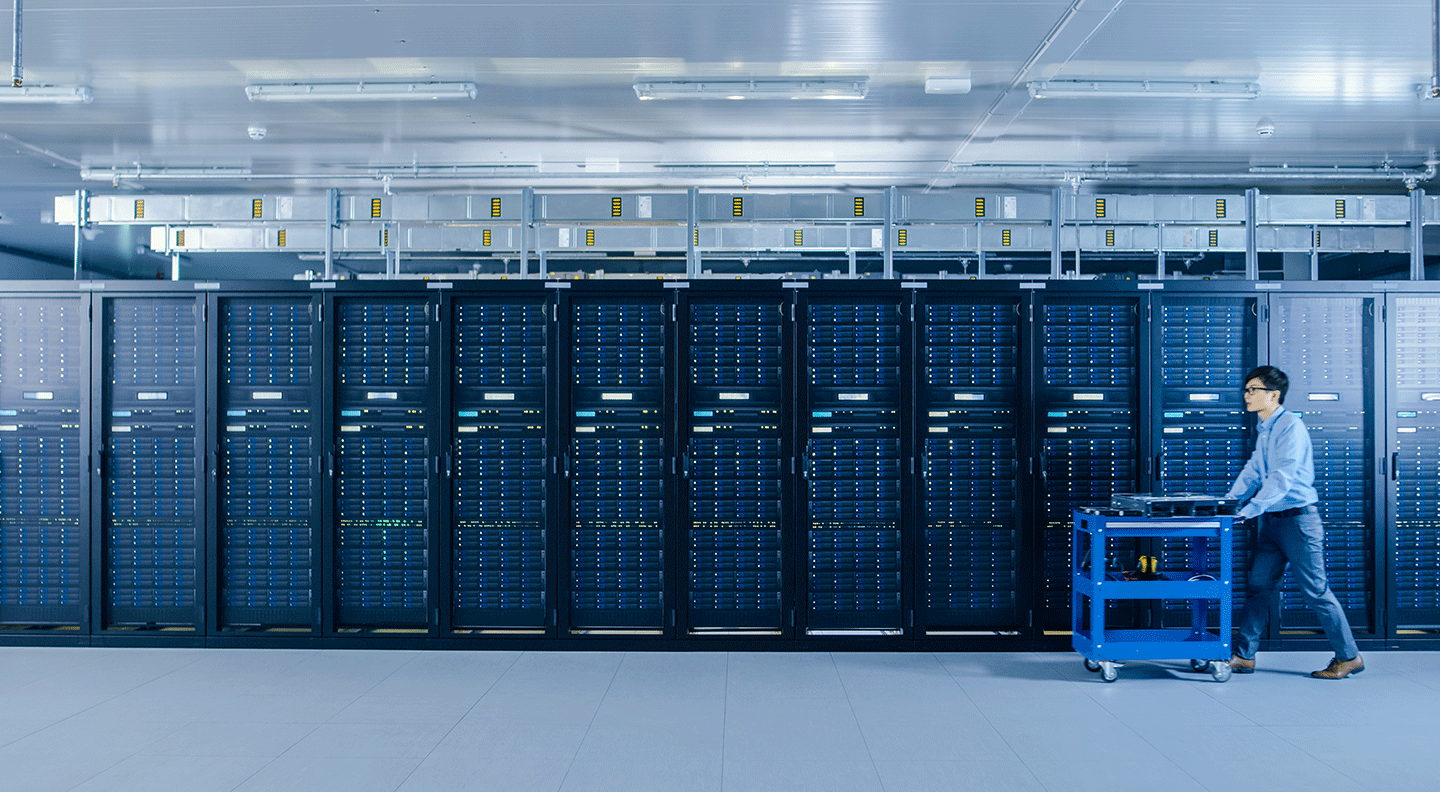Sims Lifecycle Services (SLS) continues to see increased demand for global ITAD services, mirroring the expansion and evolution of the cloud technology marketplace. In the last few years, the ripple effects of supply chain disruption, geopolitical changes and increase emphasis on sustainability agendas has seen IT reuse and recycling climbing up the corporate agenda. In this blog post we look at some of the macrotrends and disruptions likely to influence our marketplace and operating environment in the coming months and years.
Trend 1 – Technology Growth and Demand for 100% Uptime
Today’s data centers are required to run large, complex, and diverse workloads that keep life as we know it and business moving around the world and around the clock. The Facebook outage of 2021 affected an estimated 2.9 billion regular users of the application worldwide. Avoiding outages is a critical strategic consideration for data center operators. If a data center handles military finance or satellites, there is a different impact to a few minutes of Instagram being unavailable.
Data center operators need ITAD companies innovating at the same pace. Programs suitable for managing hyperscale lifecycle management need to be in the right places and so that companies can spin up solutions quickly. SLS has responded to increased demand for operations in specific geographies aligned with data center investments.
SLS is meeting the needs of our cloud customers by ramping up our capacity to provide local decommissioning and repurposing of servers in key data center areas of growth. In December 2022 SLS opened its most advanced Circular Center in Nashville, TN, dedicated to extending the lifecycle of hyperscale data center assets.
Trend 2 – Supply Chain Disruption and Global Chip Shortage
As the world shut down because of the COVID-19 pandemic many chip manufacturing operations closed temporarily. Supply dropped while work-from-home orders across the world increased demand for consumer electronics and collaboration platforms like Zoom and Microsoft Teams, which run in the cloud, created a need for more chips at data centers.
Subsequent supply shortages continue to impact industries throughout global supply chains and have resulted in reduced availability of electronics. Semiconductor production is starting to rebound, and some industry-leaders have announced significant investment in capacity increases, but demand also continues to grow leaving a shortfall in supply.
A direct consequence of limited available of new products is an increase in the demand for second-hand workplace IT and data center assets. Demand for parts and components, including chips, to feed manufacturing supply chains and repair channels also increases. Demand for commodity materials required for semiconductor production grows, increasing the need for post-consumer recycled materials.
This is good news for the ITAD and recycling industry who are working with hyperscale, corporate and manufacturing enterprises to supply refurbished units, parts, and recycled materials into their supply chains. Redeploying assets in other applications maximizes value return and fits into wider corporate sustainability strategies.
Trend 3 – Climate Change and the Transition to a Low Carbon Economy
Sustainability continues to climb up corporate agendas, and organizations look for supply chain partners who can contribute to hitting those goals. Repurposing and reusing is a fundamental component of a more sustainable circular economy for electronics.
2021 saw 25 leading global companies, including hyperscale data center providers Google and Amazon Web Services (AWS), signing the Climate Neutral Data Center Pact committing to set a high bar for circular economy practices and assessing 100% of their used server equipment for reuse, repair or recycling.
Demand for redeployment and reuse options increases as organizations look for programs that drive for optimum reuse first and desire high standards of material recovery. Alongside mature lifecycle management programs for their equipment, organizations want detailed reporting showing the carbon emissions avoided by their reuse and recycling activities.
SLS has produced an industry-leading Sustainability Calculator to provide environmental reporting when reusing, redeploying and recycling all types of IT equipment. The reporting gives clients transparent sustainability reporting suitable to contribute to carbon accounting.
In February 2022 SLS was awarded the Green Reverse Logistics Award by the Reverse Logistics Association in recognition of the value the SLS Sustainability Calculator brings to clients.
Trend 4 – Efforts to Achieve Holistic Business Sustainability
A growing number of reports demonstrate that companies adopting strong environmental, social, and corporate governance (ESG) outperform their peers. Data suggests that not only do consumers prefer organizations perceived to be doing good, but it also improves risk management, saves costs, improves innovation levels and increases financial performance. 1
Stricter ESG regulation is emerging globally, including stronger controls to protect against modern slavery and human trafficking and larger emphasis sits on taxonomies to develop mutual measurements of “sustainability”. Additionally, increasing requirements for public disclosures requires companies to be auditable and transparent with their operations, supply chain and finances. Responsible organizations are looking more closely at their vendors and supply chain partners and expect their ITAD and recycling partners to be peers when it comes to these ESG commitments, principles and deliverables.
SLS is proud to be part of the Sims Limited family. As part of a publicly traded company, our mandate to be a responsible corporate citizen is integral to every element of our business. We demand compliance to the highest standards of environmental stewardship, human rights, health and safety, labor rules and anti-corruption practices.
Conclusion
In our increasingly tech-reliant world ITAD organizations are increasingly required to demonstrate their ability to optimize repurposing and reuse options and to return value on assets. Paired with the growing demand for corporate sustainability accountability, businesses can turn to SLS for secure and sustainable management of their IT and networking equipment globally.
